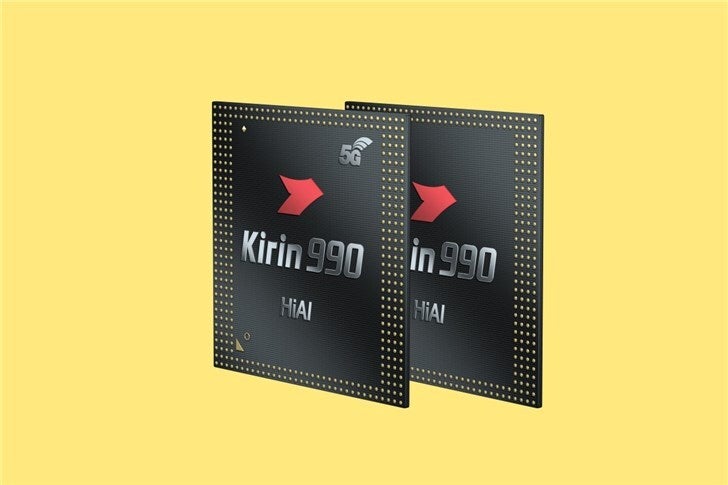One of Apple's most important suppliers is reportedly coming to America

Just a few days ago we passed along a rumor that the Trump administration was talking to Taiwan Semiconductor Manufacturing Co. (TSMC) and Intel about the possibility of the chipmakers building factories in the U.S. to produce cutting-edge chips. Back in March, there was similar speculation that TSMC was actively considering the construction of a facility in the states. That report stated that the Trump administration was pressuring the company to announce before the November election that it was building a fabrication plant in the U.S.
TSMC is trying to get on Trump's good side to prevent him from taking action against the foundry
TSMC is the largest independent foundry in the world and has a client list that contains many of the top names in the smartphone industry. Its largest client is Apple with Huawei second. It also manufactures chips for Qualcomm, MediaTek, and others. These firms design their own chips, but since they don't own fabrication plants, they count on TSMC to roll them off of its assembly line. Today, the Wall Street Journal announced that TSMC is ready to announce the building of a multi-billion dollar facility in Arizona. This comes just as the U.S. says that it would like to stop relying on chips manufactured in Asian countries.

TSMC manufactures the Kirin series of chipsets for Huawei's HiSilicon unit
The report says that TSMC could make the announcement as soon as this Friday; the company reportedly held a board meeting yesterday during which it was decided to go ahead with the plans. Previous reports claimed that both the U.S. State and Commerce Departments were involved in the negotiations and this was confirmed by anonymous sources familiar with the situation. The Journal adds that TSMC could start producing chips on U.S. soil starting in 2023 and they will be manufactured using the 5nm process node. This refers to the number of transistors that can fit inside a square mm. The company has recently started manufacturing 5nm chips and the 5G 2020 Apple iPhone 12 family could be the first smartphones to be shipped sporting a 5nm chipset.
Current chips employed on flagship phones are made using the 7nm process node which has a transistor density of approximately 96.49 million transistors. The transistor density for 5nm chips is 171.3 million transistors per square mm. As a result, Apple's 5nm A14 Bionic chipset will have 15 billion transistors inside compared to the 8.5 billion transistors inside the A13 Bionic; the latter powers the 2019 iPhone 11 line. The more transistors inside a chip, the more powerful and energy-efficient it is.
Building a factory on American soil will cost TSMC billions of dollars with industry executives estimating a figure north of $10 billion. And the facilities will need to fill thousands of positions which could result in new jobs for a number of Americans. This is potentially good news at a time when the global pandemic has left large numbers of Americans unemployed. The factory would be built in Arizona which coincidentally or not is where Republican Senator Sen. Martha McSally faces a tough re-election. President Donald Trump also stands to benefit from the construction of the facility in the U.S. Trump said this morning on Fox Business News, "We shouldn’t have supply chains. We should have them all in the U.S."
Agreeing to build a factory in the states could help TSMC on a couple of fronts, both related to Huawei. The Trump administration wants to require TSMC to obtain an export license from the U.S. before it ships chips to Huawei. These chips are designed using tools made in the U.S. which is why the Trump administration is able to hold it over TSMC's head.
In addition, the U.S. is considering a change to the Direct Foreign Investment Rule. This allows the government to control exports of products made in a foreign country if they are made up of 25% or more U.S.-origin parts by value. But the Commerce Department has drafted a change that would drop the threshold down to 10%; at that level, TSMC could be blocked from shipping chips to Huawei. The latter was responsible for $5.1 billion of TSMC's revenue last year, up 80% on a year-over-year basis. Apple generated $8.2 billion in revenue for TSMC last year. You can see why TSMC might want to get on Trump's good side; with a flick of his pen, Trump could make $5 billion in revenue disappear. The chipmaker says that if it loses Huawei as a customer, it might not be able to afford to build a plant in the states.
By the time 2023 rolls around, the 5nm chips that TSMC envisions rolling off of its U.S. assembly lines will no longer be cutting-edge. By that year, TSMC could be producing 3nm chips with a transistor density of 300 million transistors per square mm.
Follow us on Google News













Things that are NOT allowed:
To help keep our community safe and free from spam, we apply temporary limits to newly created accounts: